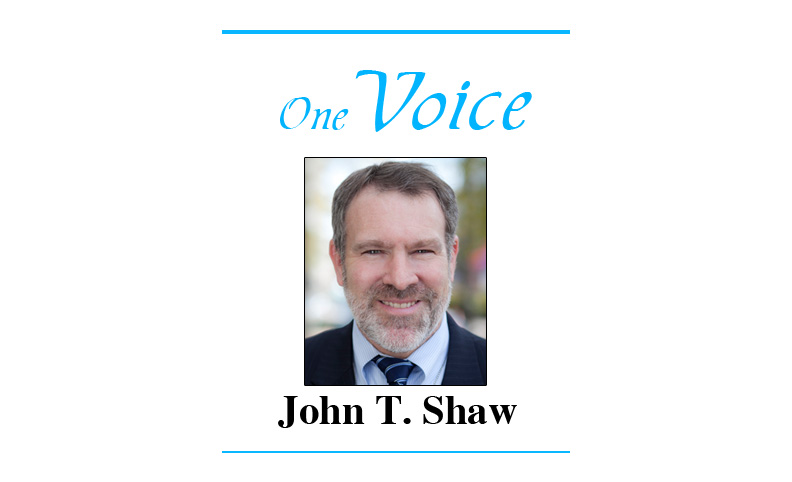
By John T. Shaw
Those in government rarely have time to extract themselves from the relentless rush of daily drama and urgent deadlines to think about the future.
Former North Carolina governor Terry Sanford once observed there is no one in the governor’s office looking out the window, pondering the problems of the future. Former congressman Lee Hamilton of Indiana made the same point, when he wrote, that members of Congress “never have time to put their feet up on their desks, look out the window, and think about long-term challenges coming at us down the road.”
The Paul Simon Public Policy Institute welcomes the challenge to help Illinois — and Illinoisans — prepare for what’s ahead with our Future of Illinois Project. We are guided by the instructions that then-U.S. secretary of State Dean Acheson gave to his new Policy and Planning staff in 1948 when he told them to “look ahead, not into the distant future, but beyond the visions of the operating officers caught in the smoke and crises of current battles: Far enough ahead to see the emerging form of things to come and outline what should be done to meet or anticipate them.”
The institute looks forward to convening leading demographers, historians, political scientists, futurists, philanthropists and business leaders to peer out over the horizon and assess fundamental challenges facing Illinois over the next three decades, from now until 2050.
We are preparing two portions of the Future of Illinois Project for next year, which is the institute’s 25th anniversary year.
In the first part, the institute invites Illinoisans to submit essays of between 1,000 and 5,000 words that outline the State’s strengths, weaknesses, opportunities, and threats and offer a specific action agenda for the state.
We are sending invitations to submit essays to Illinois constitutional officers, members of the General Assembly, mayors, academics, business and labor leaders and philanthropists. We very much want to receive essays from residents who represent the diversity of our state, including community organizers, parents, artists and students. The institute will compile these responses and publish a “State of Illinois Report” in Summer 2022. This report will include a clear and vivid demographic portrayal of Illinois based on the 2020 U.S. Census.
The premise of this portion of the project is that looking to the future first requires that we take stock of where we are now. Abraham Lincoln put it perfectly and precisely: “If we could first know where we are, and whither we are tending, we could better judge what to do and how to do it.”
The second part will be to convene a conference in Fall 2022 based on the responses we receive and the central themes that are evident in the essays. The exact structure and agenda of the meeting will be determined later, as will subsequent conferences that consider such issues as the budget, health care, education, criminal justice and transportation.
The Future of Illinois Project will catalogue reports and studies about Illinois generated in the past decade or so, serving as a clearinghouse for researchers and practitioners and helping establish what we know and what we need to know about Illinois. For example, we will track down and assemble reports from the Census Bureau, Illinois Board of Higher Education, Chicago Council on Global Affairs, Civic Federation, Commercial Club of Chicago, Rural Illinois Summit, Chicago Metropolitan Planning Council, and Forefront’s “Giving in Illinois” and “Illinois Transfer of Wealth” studies.
The Paul Simon Public Policy Institute is eager to work with everyone — groups and individuals — to think practically and boldly about the future of Illinois. Please send your ideas to paulsimoninstitute@siu.edu. Visit paulsimoninstitute.siu.edu/future for prompts to guide you.
John T. Shaw is the director of the Paul Simon Public Policy Institute at Southern Illinois University Carbondale. Shaw’s monthly column explores how Illinois can work toward better politics and smarter government.

